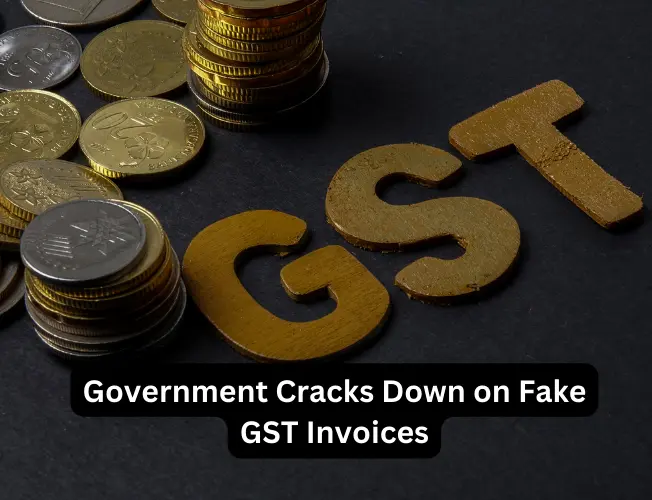In a nationwide initiative to combat fraudulent practices in GST transactions, the government has successfully exposed 29,000 firms involved in a staggering ₹44,000 crore GST evasion through fake invoices. This concerted effort has not only brought these entities to light but has also resulted in savings of ₹4,646 crore, fortifying the ongoing battle against such deceptive practices.
Special Drive Unearths Extensive Dubious Activities
The Finance Ministry, in its detailed report on Sunday, revealed the outcomes of a special drive initiated in mid-May last year. This drive aimed to identify non-existent and bogus registrations, shedding light on entities issuing fake invoices without any genuine supply of goods or services. A total of 29,273 such bogus firms engaged in suspected Input Tax Credit (ITC) evasion amounting to ₹44,015 crore have been uncovered. The government’s proactive measures have saved ₹4,646 crore, with ₹3,802 crore attributed to the blocking of ITC and ₹844 crore recovered. As a result, 121 arrests have been made in connection with these cases, emphasizing the severity of these fraudulent activities.
All-India Drive Targets Fraudulent GSTINs
Central and State tax administrations collaborated in a special All-India Drive launched on May 16, 2023. This widespread effort aimed to detect suspicious and fake Goods and Services Tax Identification Numbers (GSTINs), conduct necessary verifications, and take remedial actions to eliminate fake entities from the GST ecosystem. Utilizing detailed data analytics and risk parameters, the GST Network (GSTN) identified fraudulent GSTINs for further action by State and Central Tax authorities.
Quarterly Progress and Strengthened Processes
The Finance Ministry’s statement highlighted the quarter ending December, wherein over 4,000 bogus firms engaging in suspected ITC evasion of around ₹12,000 crore were detected. To strengthen the GST registration process, the government has initiated pilot projects incorporating biometric-based Aadhar authentication during registration. These pilot projects are currently operational in the States of Gujarat, Puducherry, and Andhra Pradesh.
Measures to Curtail Tax Evasion
In addition to these initiatives, the government has taken measures to curtail tax evasion, including sequential filing of GST returns, system-generated intimation for reconciliation of the gap in tax liability, and use of data analytics and risk parameters to detect fake ITC. These strategic steps underscore the government’s commitment to preserving the integrity of the GST system and safeguarding revenue.
The Menace of Fake Invoices and Registrations
Fake invoices, indicative of no real supply of goods or services, have become a serious challenge, leading to revenue loss for the government. Unscrupulous entities misuse identities to obtain fake registrations, defrauding the government. The issuance of bogus invoices allows these entities to fraudulently pass on input tax credits to recipients without any underlying supply.
Conclusion: A Resolute Government Response
The crackdown on fake GST invoices showcases the government’s resolute response to combat fraudulent practices. As the nation grapples with the complexities of these dubious transactions, ongoing efforts and stringent measures aim to create a robust GST ecosystem, ensuring transparency, accountability, and safeguarding against revenue loss due to fraudulent activities.
Read more about Marketing News, Advertising News, PR and Finance News, Digital News.





